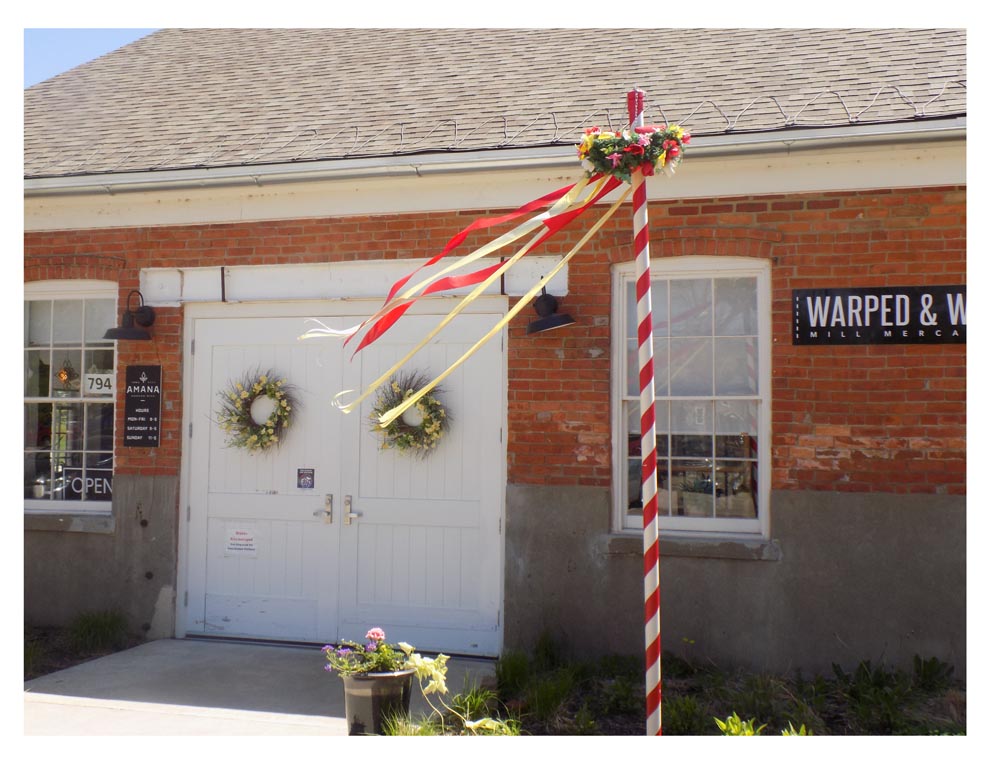
The beautiful rainbow cascaded across the northwest sky when I was leaving Aurora for a recent weekend at the Amana Colonies in Iowa. It was, as it was, a harbinger of a happy trip to come.
Listening to Iowa classical station KHKE along the way, I drove 431 miles and saw license plates from 13 other states, including California and Virginia. The temperature was hot and sunny.
Now for the shocking news that gas prices in Iowa were…wait for it…$3.39 a gallon when Aurora area prices were $4.99. I mentioned to a waitress about this difference and she replied that “you are getting ripped off.” And I said “Yes, I know, but there is nothing to be done about this in Illinois.”

Every time I go west on I-80 and pass Rock Falls, I am reminded of the time I was a statewide judge for the Governor’s Home Town Awards. Officials said I could bring another judge so I asked my friend of many years, Bruno, to accompany me.
We judged the Rock Falls entry as one of several we were assigned. Bruno passed this life approximately 11 years ago and he is sorely missed for his wisdom and maturity. He had said in the1980s that what was missing was, “respect, patriotism, and religion,” and he was right then as well as in today’s broken society. He held Poland’s highest military honor for his bravery in World War II. He was a gem of a human being.
The Meskwaki Indians farmed in the Iowa area for thousands of years. In 1855 a German community bought land and built the seven Amana Colonies. The name Amana was chosen from the Song of Solomon 4:8. Amana means to remain true. Purchasing parcels of land the community came to own 26,000 acres. Farming was the principal means of support. Wooden mills, craft shops, flour mills, lumber, and brick yards began operations for sale to outside markets.
Daily life revolved around worship, home, work, and school. All meals were prepared at neighborhood kitchen houses staffed by women. There were more than 50 communal kitchen houses in the seven villages feeding 1,500 residents plus visitors. Each village had its own meat shop and smokehouse, ice house, bakery, winery, and apiary, while large gardens and orchards provided for all.
Because of economic pressure and dissatisfaction with the restrictive communal system, in 1932 Amana abandoned the communal way of life. The Amana Society was formed to share assets. Today, the Amana Society works on farms and raises cattle, maintains the largest forest preserve in the state, operates a green energy digester that generates power and has retail businesses of the Amana Woolen Mill, General Store, Furniture and Clock Shop, Meat Shop, Smokehouse and the Amana Farms Beef.
To visit the Amana Colonies is to step back in time to a place where the U.S. Post Office is only open for one morning hour each Saturday! It is to step back to a gentle people and homemade meals from restaurants, Ox Yoke Inn or the Heritage Inn. To step back and enjoy the seasonal events, including Oktoberfest and Maifest. Along the Iowa River pastoral scenes appeal to all.
It is a step worth taking, time and time again.

